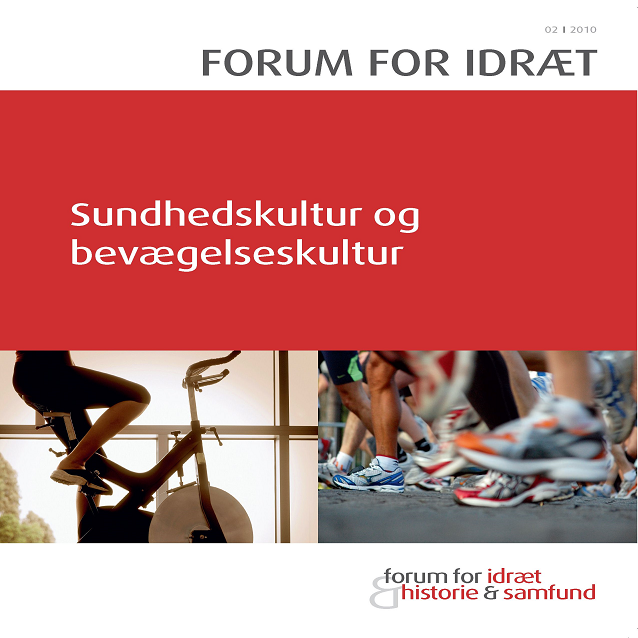Fitness på markedet - Om konstruktionen af ´det enkelte individ´
DOI:
https://doi.org/10.7146/ffi.v26i2.31600Nøgleord:
Fitness, fitnessindustri, fitnesskulturResumé
Artiklen belyser ved brug af historien og den sociale virkelighed om fitnesskulturen i Danmark, nogle filosofiske dilemmaer af teorien om den fitness-trænede individ.
Throughout the past decades, fitness training has obtained more and more significance both in the world of sports and in health promotion. At the same time, it became a source of sociological and philosophical myths about the so-called ‘individualization’, which is said to dominate current society. The relation between health and individual appearance has contributed to the perspective of ‘individual self-building’.
This article tests critically the thesis of individualization, by applying configurational analysis to fitness activities in America and in Nordic countries. The social space and time of human movement in fitness clubs, their emotions and atmospheres, inter-bodily relations and reifications tell, indeed, something about the work of ‘the individual’ on its own body, but also about inter-personal dimensions as well as about the powerful superstructures of the market and of public health policy. The question arises whether one can talk about a current ‘fitness movement’. Or does the social-cultural term of ‘movement’ describe something other? Anyway, ‘individualization’ shows as a problematic concept. But the study opens up for an understanding of individualizations in plural, each dependent of different historical periods and societal frameworks. By pluralization of concepts and of awareness, one meets different cultures of fitness, diverse cultures of health, manifold cultures of obesity…
Downloads
Publiceret
Citation/Eksport
Nummer
Sektion
Licens
Forfattere, der publicerer deres værker via dette tidsskrift, accepterer følgende vilkår:
- Forfattere bevarer deres ophavsret og giver tidsskriftet ret til første publicering, samtidigt med at værket er omfattet af en Creative Commons Attribution-licens, der giver andre ret til at dele værket med en anerkendelse af værkets forfatter og første publicering i nærværende tidsskrift.
- Forfattere kan indgå flere separate kontraktlige aftaler om ikke-eksklusiv distribution af tidsskriftets publicerede version af værket (f.eks. sende det til et institutionslager eller udgive det i en bog), med en anerkendelse af værkets første publicering i nærværende tidsskrift.
- Forfattere har ret til og opfordres til at publicere deres værker online (f.eks. i institutionslagre eller på deres websted) forud for og under manuskriptprocessen, da dette kan føre til produktive udvekslinger, samt tidligere og større citater fra publicerede værker (se The Effect of Open Access).





